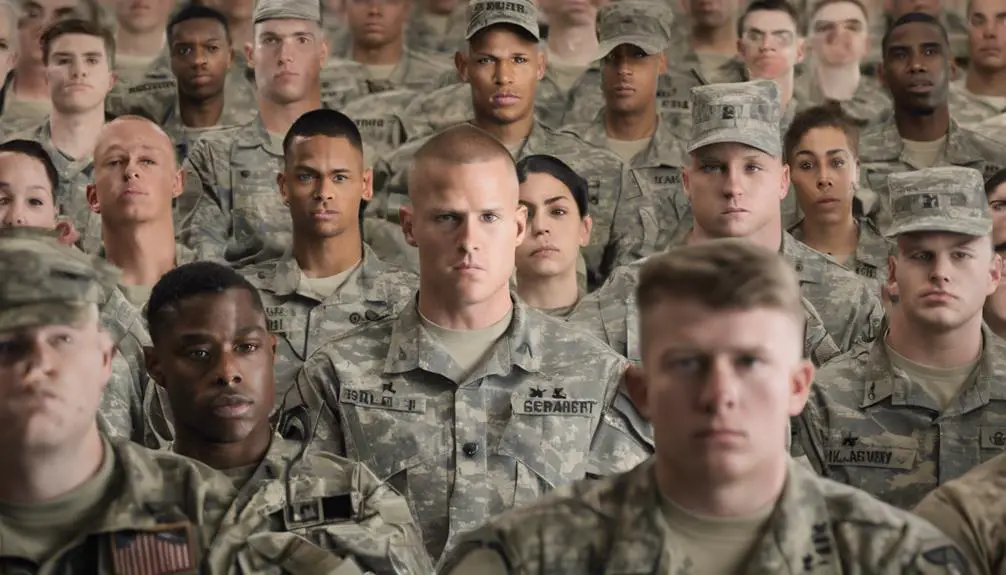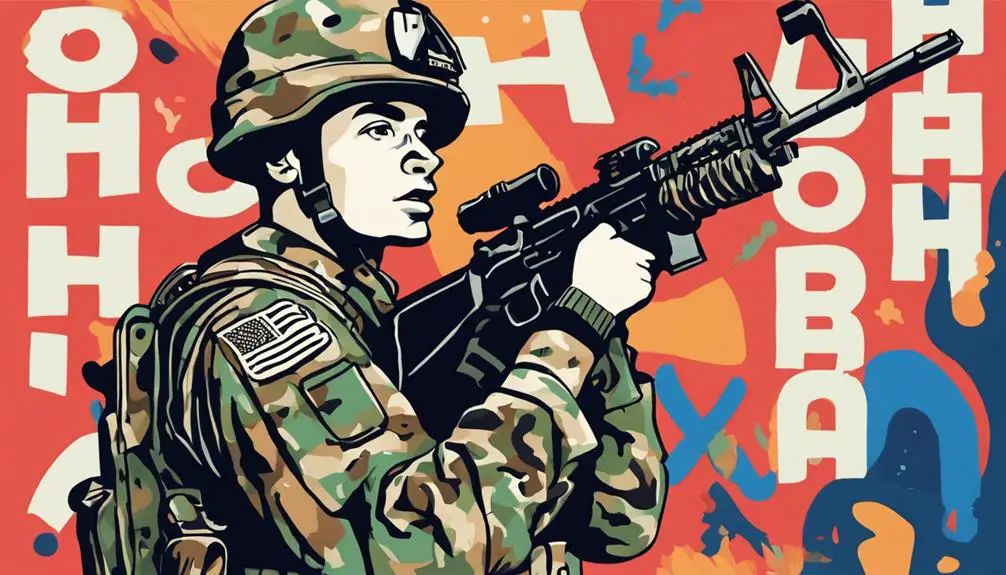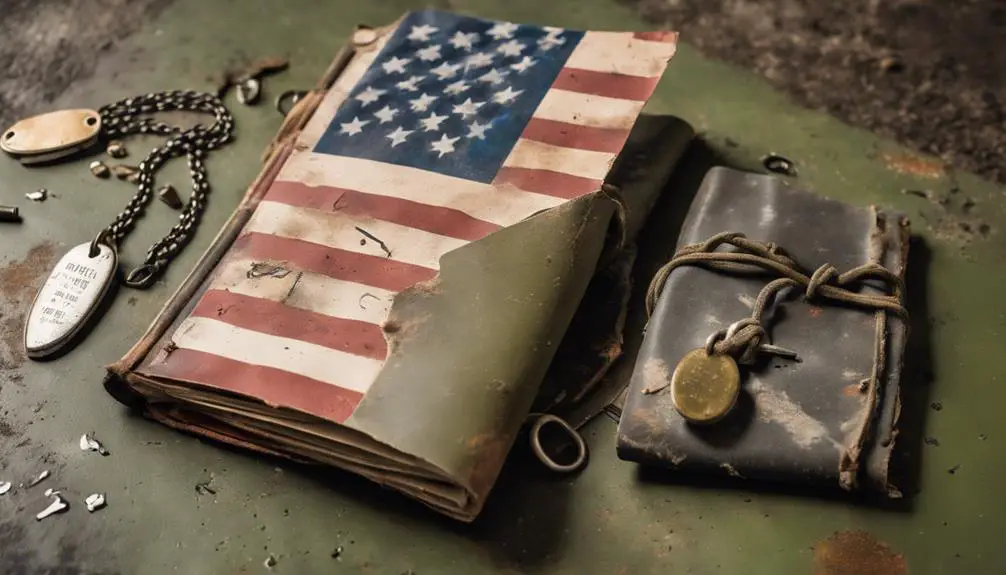You're curious about the '90 Day Wonder' phrase that's often used with a mix of admiration and irony in military circles. In essence, it refers to a newly commissioned officer who's completed Officer Candidate School (OCS) in a relatively short period – about 90 days. This term is a nod to the accelerated training process that produces officers quickly, unlike the traditional multi-year paths. As you explore military jargon, you'll discover more terms like FNG and Oscar Mike, each with its own unique meaning and purpose. There's a rich world of military slang waiting to be uncovered, with nuances and complexities that reveal the culture and camaraderie within the forces.
Origins of Military Slang Terms

Since the dawn of modern warfare, military personnel have relied on slang terms to quickly convey complex ideas, establish camaraderie, and cope with the stresses of combat, but have you ever wondered where these colloquialisms originated?
Delving into the etymological analysis of military slang reveals a fascinating historical context. You'll discover that many terms originated from the trenches of World War I, where soldiers created slang to cope with the chaos and uncertainty of war.
For instance, the term 'doughboy,' used to describe American infantrymen, is believed to have originated from the Mexican-American War, where American soldiers' uniforms resembled adobe clay. As you explore the historical context of military slang, you'll find that it's not just a collection of colloquialisms, but a reflection of the cultural, social, and political dynamics of the time.
Deciphering Military Jargon
You're likely familiar with the colorful vocabulary of military jargon, but can you decipher the nuances of 'FNG,' 'Oscar Mike,' or '90 Day Wonder'? Code breaking and jargon busting require more than just a casual understanding of military slang.
To truly understand the intricacies of military communication, you need to explore further into the world of abbreviations, acronyms, and colloquialisms.
When exploring the complex landscape of military jargon, it's crucial to recognize that each branch has its unique terminology. For instance, the Army uses 'FNG' to refer to a 'Freaking New Guy,' while the Marines employ 'Oscar Mike' to signify they're 'On the Move.' Meanwhile, the term '90 Day Wonder' is used across services to describe a newly commissioned officer.
Slang for New Recruits Only

Fresh out of boot camp, new recruits often find themselves bombarded with unfamiliar slang that can make them feel like outsiders in their own units. As you navigate the military's unique culture, it's important to grasp the lingo that'll help you fit in with your comrades.
Mastering Boot Camp Basics is vital, and that includes familiarizing yourself with Recruit Routines. You'll hear 'drop and give me twenty' (do twenty push-ups) or 'fall out' (dismissed from formation). Don't be caught off guard when your drill instructor yells 'sound off' (count off loud and clear) or 'at ease' (relax, but remain standing).
You'll also encounter 'ruck up' (get ready to march) or 'chow time' (mealtime). These phrases will become second nature as you settle into your new routine.
Time-Telling in the Military
In the military, where precision is paramount, telling time accurately is a skill you'll need to master quickly, as it can mean the difference between being on time for a mission or falling behind schedule.
You'll need to learn Military Time, which is based on a 24-hour clock. This means that 3:00 PM becomes 1500 hours, and midnight becomes 2400 hours. Understanding Military Time is essential for Clockwise Ops, where timing is everything.
When giving or receiving times, you'll need to use the correct format. For example, 8:45 AM becomes 'zero eight forty-five hours.' You'll also need to understand time zones and how they affect your mission.
Whether you're coordinating with other teams or scheduling a patrol, accurate time-telling is vital.
Humor in Military Lingo

You're about to immerse yourself in the lighter side of military slang – humor! Military slang is rife with humor, often manifesting in clever wordplay, ironic expressions, and witty abbreviations that help servicemembers cope with the stresses of military life. You'll find that funny phrases and witty one-liners are used to diffuse tension and boost morale.
For instance, 'FNG' stands for 'Freaking New Guy,' a playful jab at new recruits. In the military, laughter ranks high as a coping mechanism, helping troops deal with the pressures of combat and deployments.
Humor is an essential part of military culture, serving as a pressure valve to release pent-up emotions. You'll hear phrases like 'HOOAH' (Heard, Understood, Acknowledged) or 'Oorah' (a Marine Corps battle cry), which become ingrained in military lingo. These funny phrases and expressions not only bring laughter but also create a sense of camaraderie among servicemembers.
In the military, humor is a powerful tool that helps troops navigate the challenges of service life. By embracing humor, you'll find that laughter truly does rank high in the military.
Frequently Asked Questions
Are Military Slang Terms Used Universally Across All Branches?
You might assume that military slang terms are used universally across all branches, but that's not the case. In reality, each branch has its own unique slang, shaped by its distinct culture and history.
Branch variations and inter-service differences lead to differing terminology, even for similar concepts. For instance, the Army's 'hooah' differs from the Navy's 'hoo-yah.'
Understanding these variations is key to effective communication across branches.
Can Military Slang Be Used in Formal Military Communication?
You're probably thinking, 'Are you kidding me? Military slang in formal comms? Never!' And you're right, almost never. While it's generally a hard no, there are formal exceptions.
Slang evolution has led to some terms becoming so ubiquitous they're now accepted in official communications. Think 'sitrep' (situation report) or 'comms' (communications).
But don't get too comfortable; slang is still largely reserved for informal, casual conversations among troops. Stick to protocol, and save the slang for downtime with your squad.
Do Military Slang Terms Change Over Time or Remain Constant?
You'll notice that military slang terms don't remain static; they evolve over time, reflecting the cultural significance of the era.
As societal values and technological advancements shift, slang adapts to these changes, creating new Evolution Patterns. Terms may fall in and out of favor, replaced by fresh expressions that better capture the essence of the time.
This dynamic nature of military slang guarantees its relevance and continued use within military culture.
Are Military Slang Terms Used More by Enlisted or Officers?
You're wondering who uses military slang more, enlisted personnel or officers. The answer lies in rank dynamics and social stratification within the military.
Generally, enlisted personnel, being closer to the ground, use slang more frequently to bond and create a sense of camaraderie. Officers, on the other hand, tend to use more formal language, adhering to protocol and maintaining a professional distance.
This divide reflects the hierarchical structure of the military, where slang serves as a marker of group identity.
Can Civilians Use Military Slang in Everyday Conversation?
As you venture into the world of military slang, you might wonder: can civilians use it in everyday conversation? Absolutely! You're free to pepper your language with military-inspired phrases, but be mindful of cultural appropriation concerns.
Social media influences have already blurred the lines, making military slang more mainstream. Just remember to use it respectfully, without pretending to be something you're not.
Now, go ahead and 'hump' that conversation like a pro – just don't 'frag' it!
Conclusion
So, you've made it through the world of military slang, where a '90-day wonder' refers to a newly commissioned officer.
Coincidence has it that you've now grasped the basics of military jargon, from deciphering acronyms to telling time like a pro.
As you navigate the armed forces, remember that humor is woven into the fabric of military lingo.
Now, go forth and decode those cryptic conversations with confidence – after all, you're no longer a 'FNG' (freaking new guy)!







